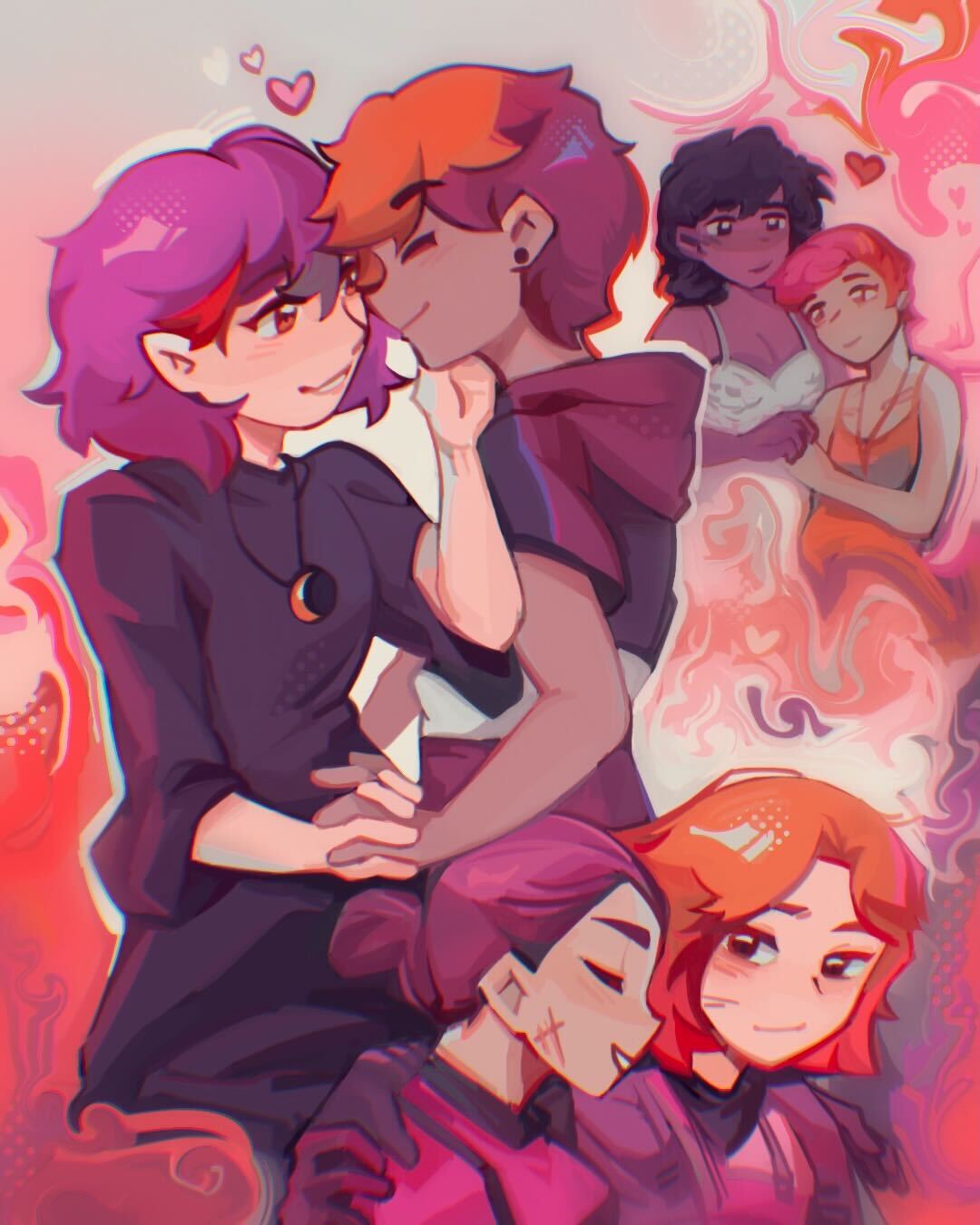Graphic by Catherine Zhang/OutWrite
After the cancellation of the beloved show “Warrior Nun” on Netflix, fans speculated as to why such a popular show could have been kicked to the curb by the streaming powerhouse. Some theorized that it may have been provoked by the second season’s relationship between two women. Though its fanbase’s dedication eventually led to the series’ development into a feature film trilogy, this isn’t the first case where shows with sapphic central characters have been stripped of funding and future seasons.
Multiple highly-rated shows that feature women-loving-women (WLW) romances, including “I Am Not Okay With This,” “Everything Sucks,” and “One Day at a Time,” have a history of being canceled by Netflix.
To sapphic audiences, there is a pattern of studios failing to support shows which risk depicting controversial dynamics. It is no secret that being LGBTQ+ in the United States is inherently political, especially with the rise of transphobic policies and ongoing debates on same-sex marriage. Controversy means less support from overall viewership, resulting in less subscriptions and profit. The fact is: investors don’t find lesbians profitable — at least, those who are not written purely for the male gaze.
There is also a history of misogyny surrounding the LGBTQ+ community. In Vicki L. Eaklor’s article, “The Kids Are All Right But The Lesbians Aren’t: The Illusion of Progress in Popular Film,” she analyzes the lack of films centering lesbian relationships and the stereotypes within the few that do. Eaklor traces the problem of the “heterosexual economy [regulating] and contain[ing] homoerotic exchanges between women” by withholding proper lesbian representation to “a deeper fear of an eroding gender order.” In other words, studio executives see lesbian films as a threat to the gender roles men play in society.
In the eyes of the patriarchy, well-executed sapphic media poses the fear of women realizing the possibility of a future without it. In other words, sapphics are women who do not “need” men to be romantically and physically satisfied. This disturbance to traditional social order creates a resentment towards sapphic communities.
In comparison, men-loving-men (MLM) content lacks parallel stakes. Men remain leads in shows, and their relationships continue to be foundational to their plotlines. The disproportionate discomfort and disdain surrounding sapphic relationships explain why MLM shows are renewed over WLW shows. Many fans found it extremely frustrating after MLM lead shows like “Heartstopper” and “Young Royals” reached massive successes and renewals while sapphic shows continued to be brushed under the cinematic rug. One cannot deny Netflix’s heavy promotion of these titles when compared to similar WLW projects. Audiences barely even heard of the arrival of “First Kill” on Netflix, whereas Netflix has consistently teased the next seasons of “Heartstopper” and “Young Royals.”
Another problem lies with the corporate perception of viewership surrounding queer television. Shows like “Heartstopper” are catered towards “the gays and the girls” — members of the queer community and cisheterosexual women who sympathize with aspects of LGBTQ+ narratives. Conversely, shows like “I Am Not Okay With This” are only expected to attract sapphic women or queer viewers. Though this media is enjoyed by broader audiences, corporations fail to anticipate interest from cishet male viewership when shows refuse to fetishize lesbians. As a result, most platforms have catered and still cater to male audiences.
Some might say, “Well, maybe these shows aren’t actually that good.” However, that’s exactly the problem. They are that good.
For reference, here is a list of popular WLW shows that have been canceled over the past few years:
| Show Title (Highlighted if canceled by Netflix specifically): | Rotten Tomatoes Score: | Audience Score: |
| “I Am Not Okay With This” | 72% | 91% |
| “Everything Sucks” | 86% | 85% |
| “Warrior Nun” | 69% (Season One) 100% (Season Two) | 95% (Season One) 99% (Season Two) |
| “The Wilds” | 89% | 84% |
| “The Owl House” | 100% | 92% |
| “First Kill” | 61% | 89% |
| “Paper Girls” | 91% | 90% |
| “Teenage Bounty Hunters” | 94% | 96% |
| “Dare Me” | 85% | 77% |
| “The Imperfects” | N/A | 65% |
| “One Day At a Time” | 99% | 90% |
| “She’s Gotta Have It” | 78% | 58% |
| “Genera+ion” | 75% | 84% |
| “A League of Their Own” | 94% | 87% |
| “Willow” | 83% | 66% |
| “Trinkets” | 60% | 76% |
| “Wynonna Earp” | 92% | 79% |
| “Gentleman Jack” | 92% | 95% |
| “Atypical” | 90% | 91% |
| “Grease: Rise of the Pink Ladies” | 63% | 80% |
| “Batwoman” | 86% | N/A |
| “The L Word: Generation Q” | N/A | 78% |
It is not fair that none of these shows got a chance to finish their stories. It isn’t fair to the cast members, the writers, and the crew, who rely on series like these as a form of stable income. It isn’t fair for the millions of viewers who connect to these characters and storylines, only to be disregarded. And it is especially not fair to the viewers whose rare moments of proper representation on screen is limited to scrapped projects. It is not fair, and it is not okay.
Nevertheless, the revival of “Warrior Nun” and the rise of dedicated fan bases endorsing these renewals brings a glimpse of hope for better sapphic representation in mainstream media.
Credits:
Author: Emerie Avila (She/Her)
Artist: Catherine Zhang (She/Her)
Copy Editors: Ariana Castro (She/Her), Bella (She/Her)

